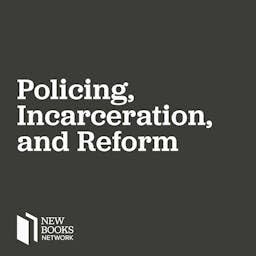Using public storytelling as a driving force, Moral Storytelling in 1920s New York, Odessa, and Bombay: Sex, Crime, Violence, and Nightlife in the Modern City (Bloomsbury, 2026) by Dr. Mark D. Steinberg explores everyday social moralities relating to stories of sex, crime, violence, and nightlife in the 1920s city space. Focusing on capitalist New York, communist Odessa, and colonial Bombay, Dr. Steinberg taps into the global dimension of complex everyday moral anxiety that was prevalent in a vital and troubled decade.Moral Storytelling in 1920s New York, Odessa, and Bombay compares and connects stories of the street in three compelling cosmopolitan port cities. It offers novel insights into significant and varied areas of study, including city life, sex, prostitution, jazz, dancing, gangsters, criminal undergrounds, cinema, ethnic and racial experiences and conflicts, prohibition and drinking, street violence, 'hooliganism' and other forms of 'deviance' in the contexts of capitalism, colonialism, communism, and nationalism.The book tells the stories of moralizers: empowered and insistent critics of deviance driven to investigate, interpret, and interfere with how people lived and played. Beside them, not always comfortably, were the policemen and journalists who enforced and documented these efforts. It also reveals the histories of women and men, mostly working class and young, who were observed and categorized: those judged to be wayward, disreputable, disorderly, debauched, and wild. Dr. Steinberg explores this global culture war and the everyday moral improvisations-shaped by experiences of class, generation, gender, ethnicity, and race-that came with it. This interview was conducted by Dr. Miranda Melcher whose book focuses on post-conflict military integration, understanding treaty negotiation and implementation in civil war contexts, with qualitative analysis of the Angolan and Mozambican civil wars. You can find Miranda’s interviews on New Books with Miranda Melcher, wherever you get your podcasts. Learn more about your ad choices. Visit megaphone.fm/adchoices
Show More
Show Less
 Mar 1 20261 hr and 1 min
Mar 1 20261 hr and 1 min 1 hr and 9 mins
1 hr and 9 mins 1 hr and 4 mins
1 hr and 4 mins 52 mins
52 mins 58 mins
58 mins Feb 8 20261 hr and 1 min
Feb 8 20261 hr and 1 min Feb 6 202655 mins
Feb 6 202655 mins 1 hr and 4 mins
1 hr and 4 mins
